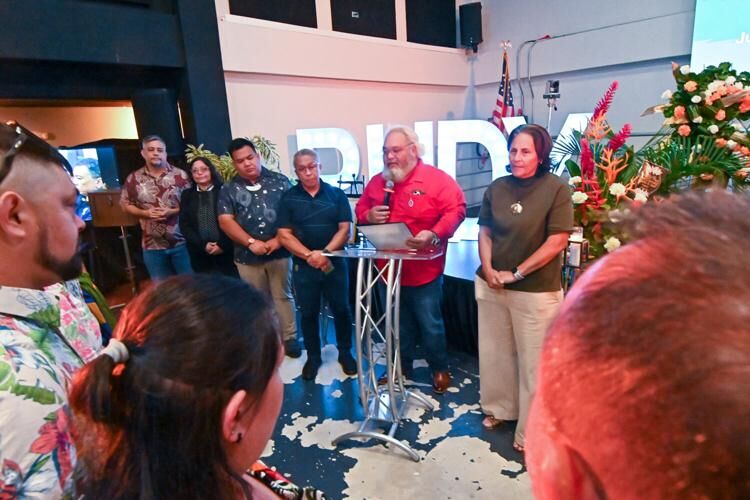HAGÅTÑA (The Guam Daily Post) — The clock is ticking for lawmakers to pass a measure that would eliminate the office of the Sinajana vice mayor, if they wish to avoid spending money on a special election and any issues that might arise from having to proceed with the election while seeking to eliminate the office.
Rudy D. Iriarte, who had been serving as the Sinajana vice mayor, died in early January following a long battle with diabetes.
His death occurred more than 240 days before a general election, which, by law, necessitates a special election to fill the vacancy. That is scheduled to be held on March 9. Candidate packets are now available at the office of the Guam Election Commission, and the deadline to file for candidacy is Feb. 8.
Shortly after Iriarte’s death, Sen. William Parkinson introduced a measure to abolish the Sinajana vice mayor’s office, Bill 230-37.
According to Parkinson, one of the last things Iriarte did before he died was to write a letter asking for the office to be abolished.
“This bill respects that wish. It is also my intent that the funds that pay for a vice mayor in Sinajana should stay with the village to pay for direct services for the residents,” Parkinson said Thursday during a public hearing on Bill 230.
According to a fiscal note on the bill, eliminating the Sinajana vice mayor position would save about $94,500.
Sinajana Mayor Robert Hofmann said Thursday that he and Iriarte engaged in conversations regarding the future of the vice mayor’s office for more than a year, all while Iriarte was aware of his declining health.
“A man of foresight, he was deeply concerned about the potential financial strain the special election would impose on the community in the event of his passing. He firmly believed that such funds could be more meaningfully allocated to vital public services, such as the hospital or the police department,” Hofmann said.
Sinajana’s population does not justify the need for a vice mayor anymore, Hofmann added.
The timing of Bill 230 is of particular concern for Parkinson, who said part of the bill’s objective is to save money for the Guam Election Commission.
According to GEC Executive Director Maria Pangelinan, the special election will cost about $25,000, with expenses including stipends for precinct officials, ballot production, transportation and security and mandated public notices.
The first date of publication is Feb. 8, the same day candidate packets are due.
“We have to publish the proclamation by the governor that says we’re having a special election,” Pangelinan said Thursday.
Feb. 26 is when GEC will begin homebound voting, she added.
“We are considering potentially trying to expedite this on the next session agenda. With that information … that really sets in my mind that if we’re trying to save money, we need to do this quickly. And especially before Feb. 26. I think that’s the more important date because I would never want to be in a position where people have cast their vote, and then we’ve eliminated a position,” Parkinson said in response to Pangelinan.
Sen. Telo Taitague, the vice chair of the legislative committee on general government operations, said Thursday that she will make a recommendation to put Bill 230 on the session agenda with a five-day period to notice the public. The Guam Legislature will go into session Monday, meaning the bill won’t see the session floor until Jan. 26 if it is added onto the agenda. Taitague also said that she would like to see testimony from the Sinajana Municipal Council and from mayors in villages surrounding Sinajana.
“More documentation gives justification, and that’s what we’re looking for here,” Taitague said Thursday.
By Friday, two candidate packets for the Sinajana vice mayor position had been picked up.

The Legislature, at the funeral of Sinajana Vice Mayor Rudy D. Iriarte on Wednesday, Jan. 17, 2024, in the central village, presents to his family a posthumous resolution recognizing his service.











